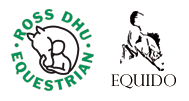Colic is ranked as the No.1 medical cause in death in horses. It is a painful condition, which can strike your horse at any time, and sometimes without cause.
The team at Ross Dhu, understand more than most the continued pressure and demands of today’s horse keeping, training and competition environments. Therefore, below we’ve provided some practical advice that we’ve gained over 40 years of experience, to help you protect your horse from becoming a victim of colic.
Understanding Colic
The truth is that scientists all over the world continue to study colic, to see what can be done about it. The upsetting fact is that at the moment there is no way to completely prevent colic. It is the horse’s physical manifestation of abdominal pain, and this discomfort can be caused by a dizzying array of conditions, from a minor excess of gas to a deadly intestinal twist, the list of conditions is endless.
However, there is evidence that the instances are decreasing, and that this is due to horses being better managed and cared for than they used to be. There are several key factors which can help protect (not prevent) your horse from getting colic, which are;
- Medical advances mean that there are much more effective deworming programs, make sure you recognise the symptoms and treat your horse accordingly.
- Understand the importance of keeping your horse hydrated, especially on long journeys. Some people wet the hay to help increase hydration
- Ensure that your horse gets enough exercise and is able to graze and after a long journey make sure you get them out walking around to help get things moving again.
- Take your horses temperature and monitor his manure. Is it runny or too firm? More frequent than normal or less frequent?
- Stress, can affect your horse and bring on a colic episode, so make sure you are particularly vigilant after a show or similar stressful activities.
- Recognise your horses ‘normal behaviour’ and watch out for any unusual behaviour, like being off their food, a funny look on their face.
- If you have any doubt, call a vet as the right care sooner rather than later can make the difference between life and death in colic situations.
However, even under the best of care and circumstances and with every possible prevention taken, colic can still strike with no good explanation of cause. All we can all do is take the best possible of our horse at all times and if something doesn’t seem right call a vet immediately.
We hope the above advice has helped you, the team at Ross Dhu.
